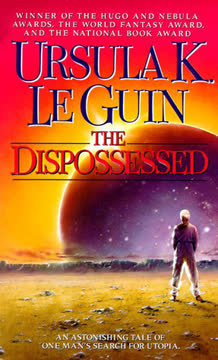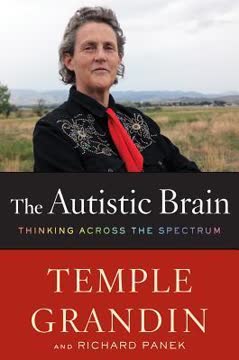Key Takeaways
1. Reason and logic have limitations in understanding the world
God, it is sometimes said, gave all the easy problems to the physicists.
Reason's constraints: While reason is a powerful tool, it often falls short when faced with the complexities of human affairs. The intricacies of social interactions, emotions, and subjective experiences cannot always be neatly analyzed through logical frameworks.
Complementary cognitive tools: To navigate the world effectively, we must recognize the value of other cognitive processes alongside reason:
- Intuition
- Emotion
- Imagination
- Pattern recognition
- Embodied knowledge
These complementary approaches allow us to grasp nuances, make quick decisions, and understand situations holistically in ways that pure logic cannot always achieve.
2. Language shapes our thoughts and cultural perspectives
Every language is another way of being human, another way of being alive.
Linguistic relativity: The language we speak influences how we perceive and interact with the world. Different languages carve up reality in unique ways, emphasizing certain concepts and downplaying others.
Cultural cognition: Language and culture are inextricably linked, shaping each other over time:
- Vocabulary reflects cultural values and priorities
- Grammatical structures can influence attention and memory
- Metaphors and idioms encode cultural wisdom and worldviews
Learning multiple languages can expand our cognitive flexibility and cultural understanding, allowing us to see the world through different lenses and appreciate diverse perspectives.
3. Scientific knowledge is not absolute and evolves over time
Every paradigm that has come and gone is now deemed to have been false, inaccurate, or incomplete, and it would be ignorant or arrogant or both to assume that our current ones might amount to the truth, the whole truth, and nothing but the truth.
Paradigm shifts: Scientific understanding is not static but undergoes periodic revolutions as new evidence challenges established theories. Thomas Kuhn's concept of paradigm shifts highlights how scientific worldviews can fundamentally change over time.
Limitations of scientific method:
- Inductive reasoning cannot provide absolute certainty
- Observations are theory-laden and subject to bias
- Funding and publication biases can skew research priorities
- Scientific consensus can be slow to change due to institutional inertia
Recognizing the provisional nature of scientific knowledge encourages humility, critical thinking, and openness to new ideas while still valuing the immense progress science has enabled.
4. Emotions play a crucial role in decision-making and cognition
To control our emotions is to control ourselves, and to control ourselves is to control our destiny.
Emotional intelligence: Understanding and managing our emotions is crucial for effective decision-making, social relationships, and overall well-being. Emotions are not opposed to reason but work in tandem with it to guide our choices and actions.
Cognitive-emotional interplay:
- Emotions focus attention on relevant information
- They provide rapid assessments of situations
- Emotional memory enhances learning and recall
- Empathy allows us to understand others' perspectives
Developing emotional awareness and regulation skills can lead to better judgment, improved relationships, and greater resilience in the face of challenges.
5. Intuition and insight offer valuable alternatives to rational thinking
Intuition is often confused with instinct. Instinct is not a sense or feeling about something, but a tendency towards a particular behaviour that is innate and common to the species.
Intuitive cognition: Intuition involves rapid, unconscious processing of information based on past experiences and pattern recognition. It can lead to valuable insights, especially in complex or ambiguous situations where analytical thinking may falter.
Cultivating intuition:
- Gain diverse experiences to broaden your knowledge base
- Practice mindfulness to become aware of subtle cues
- Allow time for incubation of ideas
- Trust your gut feelings, but verify when possible
- Reflect on past intuitions to refine your instincts
Balancing intuitive and analytical thinking can lead to more holistic and creative problem-solving approaches.
6. Wisdom involves understanding the interconnectedness of things
Wisdom is the understanding of causes. None of the senses are regarded as wisdom because, although they give the most authoritative knowledge of particulars, they are unable to discern the distal causes of anything.
Holistic perspective: Wisdom goes beyond mere knowledge accumulation. It involves seeing the big picture, understanding complex relationships, and recognizing the long-term consequences of actions.
Characteristics of wisdom:
- Acceptance of uncertainty and ambiguity
- Recognition of multiple perspectives
- Balancing of conflicting interests
- Ability to learn from experience
- Emotional regulation and empathy
- Ethical decision-making
Cultivating wisdom requires lifelong learning, self-reflection, and a willingness to challenge one's assumptions and biases.
7. Inspiration and creativity stem from both conscious and unconscious processes
Inspiration amounts to some sort of alignment or channelling of primal energies, which cannot quite be summoned or relied upon.
Creative cognition: Inspiration often arises from a combination of focused effort and unconscious processing. The "aha" moment of creative insight typically follows periods of intense work and subsequent relaxation.
Fostering inspiration:
- Expose yourself to diverse ideas and experiences
- Allow time for incubation and mind-wandering
- Engage in activities that promote flow states
- Practice divergent thinking exercises
- Cultivate curiosity and openness to new perspectives
- Create environments conducive to creativity
Recognizing that inspiration cannot be forced but can be cultivated allows us to create conditions that maximize our creative potential.
8. Self-awareness and emotional intelligence are key to personal growth
To feel the right thing is to do the right thing, without any particular need for conscious thought or deliberation.
Emotional literacy: Developing the ability to recognize, understand, and manage our emotions is crucial for personal growth and effective interpersonal relationships. This involves not just intellectual understanding but also embodied awareness.
Cultivating self-awareness:
- Practice mindfulness meditation
- Keep a reflective journal
- Seek feedback from trusted others
- Explore your reactions through therapy or coaching
- Study different emotional frameworks and vocabularies
- Engage in activities that challenge your comfort zone
Increased self-awareness allows us to make more intentional choices, regulate our responses, and align our actions with our values.
9. Music has profound effects on the mind, body, and emotions
Music is the school and the hospital of the emotions.
Neurological impacts: Music engages multiple brain regions, affecting cognition, emotion, and even physical responses. It can alter brain chemistry, influencing mood and physiological states.
Therapeutic applications of music:
- Reduces stress and anxiety
- Improves mood and emotional regulation
- Enhances cognitive function and memory
- Aids in physical rehabilitation and pain management
- Facilitates social bonding and communication
- Supports emotional processing and catharsis
Intentionally incorporating music into our lives can enhance well-being, creativity, and emotional resilience.
10. Imagination expands our cognitive horizons beyond immediate reality
Imagination is more important than knowledge: 'I am enough of the artist to draw freely upon my imagination. Knowledge is limited. Imagination encircles the world.'
Cognitive flexibility: Imagination allows us to transcend the immediate and consider alternative possibilities. This capacity underpins creative problem-solving, empathy, and long-term planning.
Functions of imagination:
- Enables mental simulation and scenario planning
- Facilitates empathy by allowing us to imagine others' perspectives
- Supports abstract thinking and conceptual understanding
- Drives innovation and creative expression
- Provides emotional regulation through fantasy and daydreaming
- Enhances learning by creating vivid mental models
Cultivating a rich imaginative life can lead to greater cognitive flexibility, enhanced problem-solving skills, and a more expansive worldview.
Last updated:
Review Summary
Hypersanity receives mixed reviews, with readers praising its thought-provoking content and accessible writing style. Many find it insightful, offering a fresh perspective on thinking and cognition. Some readers appreciate the book's focus on logic, fallacies, and cognitive biases. However, others feel it falls short of delivering on its promise of "hypersanity" and lacks depth in certain areas. Despite this criticism, many readers find value in the book's exploration of human thought processes and its potential to enhance self-awareness and critical thinking skills.
Similar Books










Download PDF
Download EPUB
.epub digital book format is ideal for reading ebooks on phones, tablets, and e-readers.








